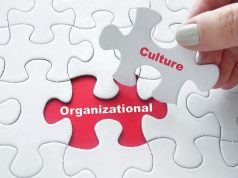Amber Rose Bedell is the founder and clinical director at Pure Solution Family Services, Inc. As an industry leader in the field of holistic therapeutic services for survivors of trauma, attachment and adoption placements. Formerly, Ms. Bedell worked as a licensed marriage and family therapist, where she has combined her training with traditional psychotherapy, attachment theory, neuro-scientific research and quantum physics. In doing so, Ms. Bedell has created a transformative theory and practice for healing trauma. In the following article, Amber Bedell discusses these theories, as well as epigenetics and how genes play a role in behavior at the cellular level.
Prolonged trauma that won’t seem to go away is also known as PTSD, or post-traumatic stress disorder. There are plenty of standard treatments out there that have varying levels of efficacy, but what are the best holistic treatments for trauma recovery?
Neuroscientific treatments, attachment theory, quantum physics, and epigenetics all show very promising forms of therapy that could very well replace the traditional psychotherapy approach explains Amber Rose Bedell.
These directed treatments in combination with a holistic consideration including; diet, physical activity, supplements, body work, social connections and mindfulness practices are widely being recognized as the best practices for trauma healing and recovery. This approach, while certainly on the rise, has not yet become the mainstream approach, although it is believed that the new paradigm will replace and make the old paradigm obsolete.
Traditional Psychotherapy
Traditional psychotherapy is the most common form of treatment for PTSD, although there are many forms of psychotherapy that are supported by the American Psychological Association, some of which are more highly recommended than others, including:
Highly Recommended Forms of Psychotherapy
- Cognitive Behavioral Therapy (CBT)
- Cognitive Processing Therapy (CPT)
- Cognitive Therapy
- Prolonged Exposure
Amber Bedell says that there are some forms of psychotherapy that are still considered effective, but they tend to have a higher chance of negative outcomes, including:
- Brief Eclectic Psychotherapy
- Narrative Exposure Therapy
- Medication
- Psychoanalytic Therapy
Emerging neuro-scientific research
Amber Bedell explains that neuroscientific research leads to many new promising therapies coming out every year, most of which seem very foreign to traditional therapies. This does not mean that they are ineffective, but simply they haven’t been studied as deeply as other forms of therapy.
It is believed that PTSD can occur from physically traumatic events such as traumatic brain injuries. PTSD has a distinct neurochemical profile and recent therapies suggest regulating things like amino acids, catecholamine, peptides, serotonin, and opioid neurotransmitters could help combat this traumatic disorder.
Attachment Theory
Amber Rose Bedell explains that attachment theory is a part of attachment therapy, it focuses on how a patient’s childhood can have an impact on their capacity to create and foster significant bonds as an adult. It is generally reserved for those who have had traumatic childhoods, but recent research suggests that anyone who has problems making profound connections can benefit from this therapy.
Attachment theory as a treatment involves addressing childhood trauma and then reinforcing self-regulation techniques in order to create meaningful bonds as an adult. There are many modalities related to attachment-focused therapies that have proven successful, such as:
- Attachment, Self-Regulation ; Competence – (ARC)
- Child-Parent Psychotherapy (CPP)
- Dyadic Developmental Psychotherapy (DDP)
- Eye Movement, Desensitization, and Reprocessing (EMDR)
- Parent-Child Interaction Therapy (PCIT)
- Real Life Heroes
- Trust-Based Relational Interventions (TBRI)
- Trauma-Focused Cognitive Behavioral Therapy (TF-CBT)
- Theraplay
- Trauma Resiliency Model/Community Resiliency Model (TRM/CRM)
- Emotional Freedom Techniques (EFT) Tapping
There are also a few neurologically-based modalities, made famous by Dr. Dan Siegel and Dr. Bruce Perry, that have proved helpful when combined with attachment therapy according to Amber Rose Bedell, including:
- Interpersonal Neurobiology
- Neurofeedback
- Neurosequential Model of Therapeutics (NMT)
- Neurodevelopmental Reorganization
- Sensory Integration
 Quantum Physics
Quantum Physics
Amber Bedell says that the idea behind quantum physics in relation to trauma recovery is that the brain can be changed using quantum cognition. It involves neuroplasticity of the brain, and its ability to create new neural connections, overwriting the old connections that are believed to be associated with anxiety, depression, and negative behaviors.
Quantum Cognition
At its core, the idea is that mental health problems like depression are simply a set of neurons that are connected which can affect your actions and feelings explains Amber Rose Bedell. By activating, or thinking in a certain way, these neural pathways repeatedly end up becoming the default way in which we think or act. Thinking about the same things repeatedly will eventually wire your brain. It is possible to re-wire the brain and form new neural connections—rapidly. As we say, neurons that fire together—wire together.
Quantum Treatment
This is another treatment based on quantum mechanics, call quantum treatment according to Amber Rose Bedell. Magnets and waves are used as part of electromagnetic wave therapy that is supposed to repair mental, physical, and emotional balance with the help of a computer that can transform the waves in the brain, ultimately altering the patient’s mood and behavior.
Epigenetics
The theory behind epigenetics is that trauma or addiction can only be remedied by altering your cells or genes. Epigeneticists believe that DNA plays a profound role in our behaviors, like depression and PTSD. If these can be changed at a cellular level, they can be overcome. Genes are not a life sentence, they are written in pencil and can be turned “on” or “off” based on environmental conditions and thought patterns.
There is plenty of solid research that supports what epigeneticists believe, some of this research shows that certain genes play a role in increasing the risk for alcohol use disorder. Amber Bedell of McKinleyville says that this same approach is taken when analyzing PTSD.
Similar studies show that trauma can be passed down through generations leaving a “chemical mark” on a person’s genes. This is not to say that a genetic mutation occurs, but rather that a chemical change materializes causing traumatic feelings to be passed from one human to their offspring.
Treatments include psychotherapy such as cognitive behavioral therapy (CBT) and eye movement desensitization processing (EMDR), Emotional Freedom Techniques and other therapeutic practices that focus on changing thoughts and beliefs in order to reduce the symptomology of trauma. Amber Rose Bedell explains that medications such as mood stabilizers, anxiolytics, anticonvulsants, and antidepressants have also proven effective in combating PTSD.
Final Thoughts
Mental health concerns are very new in the medical world, Mental Health Awareness Month didn’t begin until 1949, so there are many treatments that are still being developed. Just because they are new doesn’t mean they are any less effective than more popularized treatments such as talk therapy. The field of psychology is still in it’s beginning stages. More therapists are beginning to recognize the limitations and at times detrimental effects of traditional talk therapy. Talking about our problems, traumas and history once a week for several years keeps the mind focused on the problem not the solution. When the mind is focused on what is not working we are not in the space to orient towards what will work.
Holistic treatments should be taken seriously as effective treatments for trauma and PTSD, especially because older modalities don’t seem to be working as well as we, as a collective, once believed they would. When it comes to healing chronic trauma, all potential scientific approaches should be considered. Holistic healing modalities that include mind, body and soul are on the rise. Many well known and respected practitioners are leaving the traditional models of psychotherapy for the newer modalities that consider the whole person and are rooted in family systems and attachment practices.






